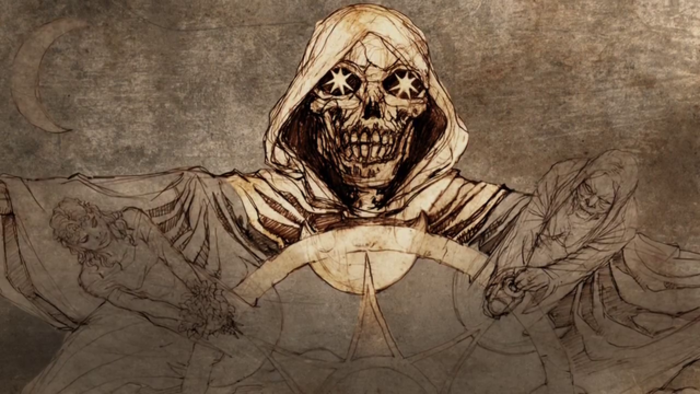
From GameofThrones.Wikia.com, with permission from HBO
When I first heard the title of episode four, “Book of the Stranger,” I thought it meant there would be a lot of deaths. We now know that is not the case, and my first impression was probably a bit too literal.
So how, then, did the show use the concept of the Stranger? Let’s examine it on a case-by-base basis.
The Origins of the Stranger
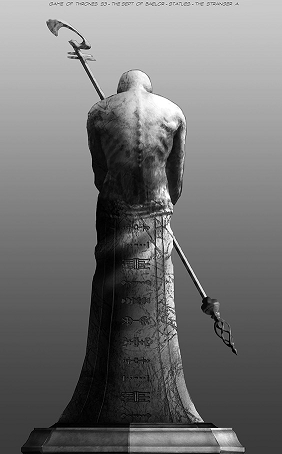
Concept art for the statue of the Stranger from GameofThrones.Wikia.com
First, though, we should start with some background.
The Stranger is one of the seven gods of the new(er) Westerosi faith, and he represents death and the unknown and is sometimes invoked by outcasts. I say “he” but, in truth, the Stranger is really neither male nor female, and the god is often represented in statues as an animal/human hybrid. Like the example above, the Stranger often faces away from the worshiper, hiding his face and remaining in shadow, and if you look closely in the various Great Sept of Baelor scenes, you can see the Stranger’s statue is definitely doing this.
George R.R. Martin most certainly got his idea for the Stranger – and for the six other gods – from mythological and literary archetypes in our own world. The Stranger is a particularly interesting one, as it is a very old archetype that has been re-used in many ways in more modern times. Its use in Jungian psychology is particularly helpful here – the Stranger in Westeros corresponds to the Shadow in Jungian terms. It is that part of ourselves that we repress in order to live and play nicely with others. It is our most basic animalistic instincts, our most selfish impulses to exclude and fear the Other, and it’s usually not what we consider our most flattering side. The Jungian psychological approach says that in order to become truly healthy, one must recognize and accept the Shadow/the Stranger as part of oneself; we must integrate all the different archetypes that we embody.
The High Septon
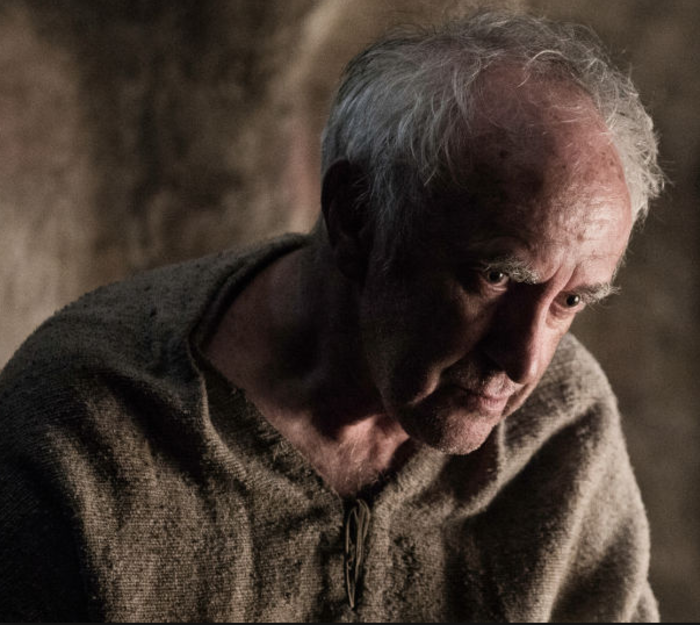
The most literal reference in the episode is the conversation between Margaery and the High Septon, wherein the queen tells her captor that his personal story sounds an awful lot like what is in the Book of the Stranger from the Seven-Pointed Star, their holy text. The High Sparrow says it is similar, and then explains how he discovered his life’s mission and his embracing of a permanent outsider status: he remains poor, knowing full well it will endear him to the smallfolk and alienate him from the privileged, ruling classes.
The High Sparrow, ironically, does not acknowledge the fact that he now wields a tremendous amount of power – the same kind of power as the lords, the kind of power he was striving for when he was making expensive shoes for the rich. We presume that he thinks his religious intentions make it acceptable to seize and use such power; nonetheless, his intentions both then and now will result in the same outcome. Maybe he didn’t learn, even though he now thinks he has.
There is a final parallel between the High Sparrow and the Stranger: he’s a literal Stranger to the aristocrats and the audience alike – we still don’t even know his true name. Who is he, really? Why is he there? He is an unknown quantity that the lords have underestimated time and time again.
Sansa Stark
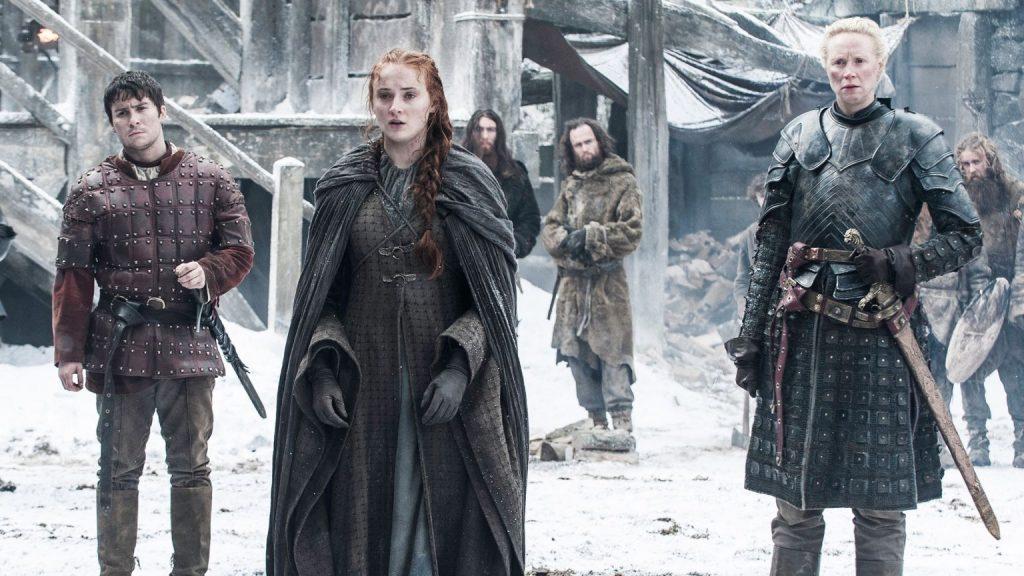
Sansa is, of course, a stranger in Castle Black to all but Jon – and one could even argue that the both of them have changed so much that they are, in many ways, strangers to each other. More specifically, in this episode we see Sansa accepting the mantle of leadership, insisting that they take back their home, which means she is going to have to embrace the rage, the violence, and the selfishness that her youthful daydreams of chivalrous tales never included. She was so sure she’d end up as someone’s wife, waiting at home in silken clothes that took a peasant a year to make while her noble husband went out and acted in the world. Now she is going to get her hands dirty – and she is more than ready.
She is being selfish by expecting others – the wildlings and Stark family bannermen – to sacrifice themselves to help her achieve her goal; she believes it is her right to expect the Stark loyalists to help her, and, furthermore, she demands that Jon expect the wildlings to follow him because they owe him their lives. (Such selfishness is at the core of the Stranger, but by taking action to regain her home, she will also, ironically, be embracing the mask of the Warrior/Hero – something that is typically reserved for men in her culture.)
She represents the outcast facet of the Stranger in many ways: by merely being a woman; by being the daughter of a supposed traitor; by having been married to two different outcasts herself – a dwarf and a bastard. What’s more, throughout the show, she has been routinely treated as an outcast, which means she has been treated as a plaything, an object, a tool, an extension of someone else, and a recipient of whatever emotion the men around her needed to unload. Now, by asserting herself further, she is consciously taking on that role of outcast and integrating it.
Jon Snow
Jon is also struggling, but in the opposite direction as Sansa: he wants to move away from conflict, confrontation, and his dark side. He is basically trying to find a new direction in his life. His instinct to protect his home and his family, that instinct he rejected when he chose the Night’s Watch, has reared its head again. He rejected it for so long that he is struggling to wrap his mind around it, and the irony is probably not lost on him that he has come full circle.
Jon, now, is a stranger to Sansa, and maybe even a stranger to himself after his resurrection. One thing he does still know is what it means to order people to die for his goals, and it is an incredible burden for someone with a conscience – exactly what he was trying to express to Sansa, and maybe why he is so exhausted from his journey. He has been alternating between playing the Stranger as an outcast (a bastard, a new recruit to the Night’s Watch, a crow in the midst of the wildlings) and playing the role of Warrior/Hero (as the lord commander, defender of his friends, maker of peace with the wildlings), and the latest part of that journey makes him more representative of the former than almost anyone else on the series – he did come back from the dead, after all. It doesn’t get any more literal than that.
Although Jon’s poor noodle is totally scrambled right now, and it’s hard for him to process everything that is going on both around and within him, we, like Sansa, want him to continue fighting. As time passes, I think we will see Jon fully integrating those positive and negative aspects of himself and embracing this new path.
Petyr Baelish
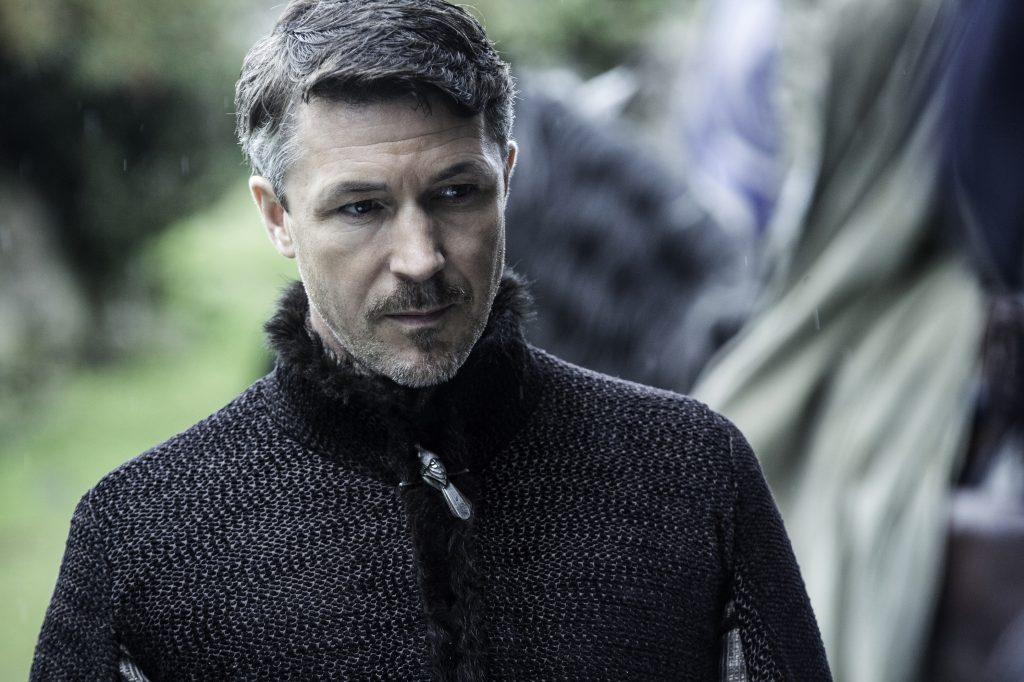
Littlefinger’s manipulative behavior is so self-serving, so venal, that his actions embody those worst instincts of self-protection over the welfare of others – even others he purportedly cares about. For example, he gave Sansa over to the Boltons without thoroughly vetting what kind of situation he was putting her in, without discovering that Ramsay was a sadist (according to the actor and the producers). Not that this excuses him from being perfectly willing to use her and her virginity to further his own goals, of course.
Obviously, Littlefinger has never had any problem with acknowledging the Stranger within himself. His struggle is the opposite, actually – to find the Warrior/Hero within himself. Maybe his decision to take the Vale’s troops north to help Sansa is part of this process. Oh, who am I kidding! This guy will never be integrated, and he will continue to let his Stranger flag fly. Anything else he appears to be is definitely a mask.
Cersei and Jaime Lannister
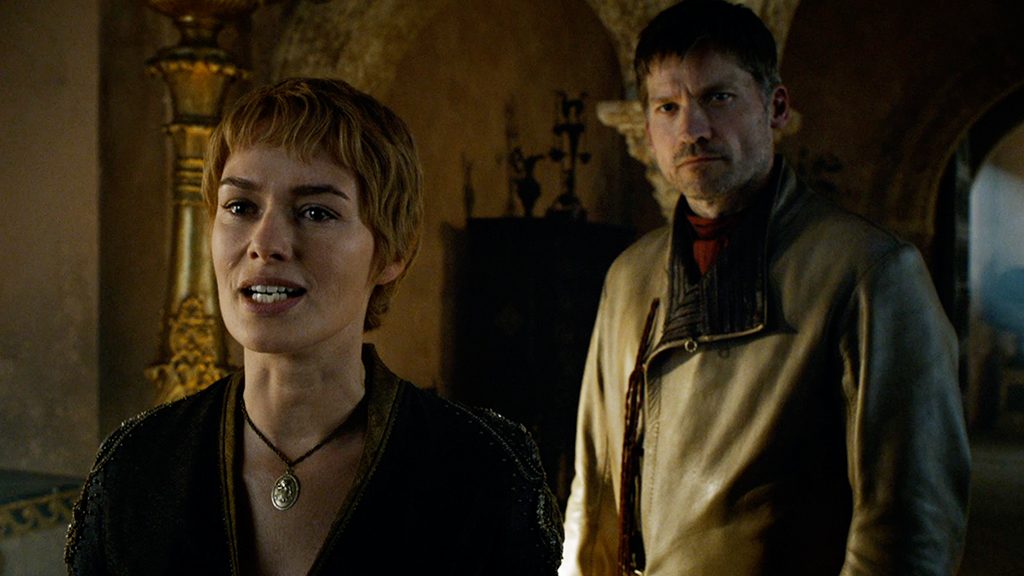
All of Cersei’s actions seem to be self-serving and come from the Shadow within. She justifies this by adopting an utilitarian approach, saying it is for her children and her family. Regardless of her professed motivation, however, the result is the same – making her, ironically, identical to the High Sparrow.
Jaime, on the other hand, has been on a multi-season journey that wavers back and forth between the Warrior/Hero ideal and the Stranger’s base instincts. Currently, he is back under Cersei’s thumb and fearful, as is she, of losing their only remaining child. Nothing brings out the Stranger and our worst impulses like fear.
Tyrion Lannister
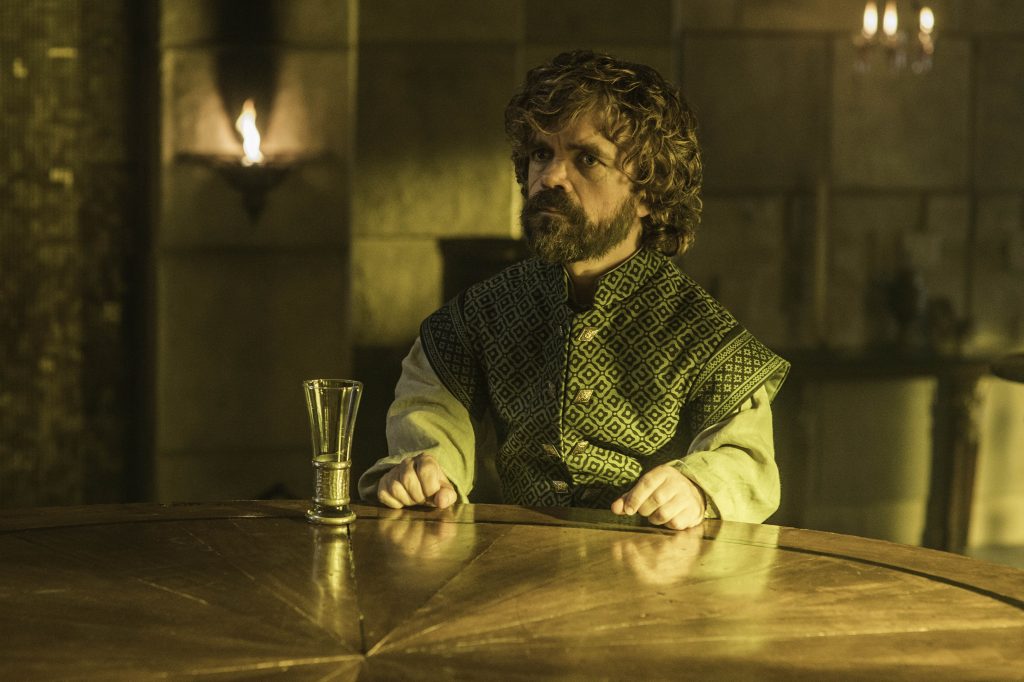
The Meereen storyline is the Stranger writ large.
Tyrion understands that you have to accept some darkness in order to make political compromises. It ain’t pretty, and it ain’t fun, but it is self-preserving, even if it often comes at the expense of others; in any political compromise, someone, somewhere, will get the shitty end of the stick, and it is usually those who lack any kind of representation and who are, thus, the most vulnerable (such as slaves, children, and immigrants).
This is the perfection manifestation of Tyrion as an individual: he is fairly well-integrated, and he knows when it is time to wear the mask of the Warrior/Hero (as Missandei and Grey Worm urge him to do) and when to let the the Stranger out – although, like Jon, he oftentimes feels guilty about what he must do when channeling the latter. (He also is the very epitome of the outcast, tying him to the Stranger even more thoroughly.)
Theon Greyjoy
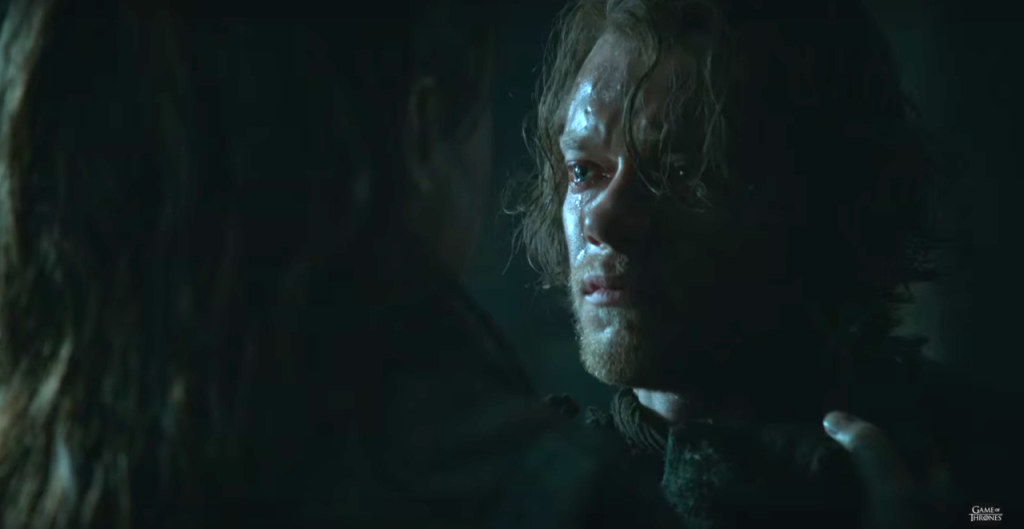
Theon – until this episode – is another outcast, one who has no real home; he was never really a part of the Stark family, he was rejected by his father (and the rest of his people) when he returned to his childhood home, and he was a prisoner subjected to repeated physical and emotional torture. During this last period, while under Ramsay’s thumb, he was forced to live completely in the shadows, retreating to his most basic instincts, becoming the Stranger personified. If he had to eat rats alive (as in the books), sleep with the dogs, reject his sister’s offer of rescue, or watch someone he cared about get raped, he did it, all in the name of survival. (Not that these things didn’t disturb him – they clearly did, as we could tell in his final conversation with Sansa before leaving to return to the Iron Islands.)
Theon is a person climbing out of the Shadow, beginning a slow transition from the Stranger to the Warrior/Hero. He will never be the ideal Warrior, with sword and strength and rectitude, but he nonetheless now intends to do the right thing, as evidenced by helping Sansa escape or, in this episode, throwing his support behind his sister to rule the ironborn.
This new-and-improved-yet-damaged Theon is a far cry from the child that left the Iron Islands or, even, from the man who last visited Pyke, back in season two. He is a Stranger in his own home, desperate to be belong again.
Brienne of Tarth
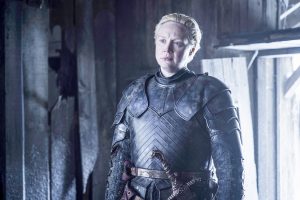
As a woman who dresses like and fights against men in a male-dominated society, Brienne has never felt comfortable anywhere except in a good fight. As a result, she is a Stranger to everyone, no matter where she goes; one need not look any further than the reactions she gets any time she arrives at a new location.
In this episode, Brienne makes sure that Davos and Melisandre know it was she who took Stannis’s life, and that she has not forgiven Mel for the blood magic that killed Renly. She announces her revenge with no shame, but what is revenge? It doesn’t help the dead – only the living. There is an element of selfishness implicit in Brienne’s actions. Indeed, she has killed quite a few people in her goal to be an honorable knight – that is to say, one who does the right thing in all cases – and while most of those people deserved it, it still doesn’t mean that her motives are always entirely pure.
Ultimately, Brienne craves the role of the Warrior/Hero because it fulfills something she lacks: belonging.
Daenerys Targaryen
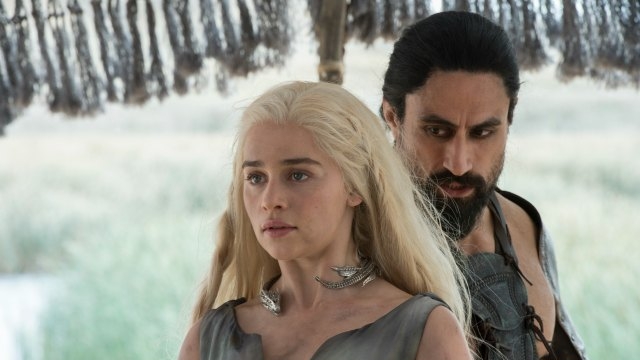
Both throughout the series and in this specific episode, Daenerys has been a bringer of death. This is a side of herself that she had to embrace in order to survive, to help the plight of the slaves in Slavers’ Bay, and, finally, to overcome the khals who rejected her offer to lead them, as she most certainly knew they would. She is the outsider who comes in and turns things upside down, that destroys tradition.
Is her goal selfish? Yes, because why should the Dothraki people care about who sits on the Iron Throne in Westeros? Is she using them as a means to an end? Absolutely. Everyone has the Stranger in them, and Dany is no different, no matter how noble her intentions might be (to free the slaves or to bring justice to Westeros). Oddly enough, she is both the Stranger and the Warrior/Hero, much like Jon; her story appeals to so many because she is growing into her full power and is now the one doing the rescuing instead of needing rescuing herself.
Ultimately, the Stranger is not just a simple symbol for death or an aspect of our psyches that needs integration – it is also the quest a person undertakes in life. Like the High Sparrow’s story and, apparently, the Stranger’s chapter in the Seven-Pointed Star, the Stranger’s journey is about revelation, and how that revelation informs what choices we make and what paths we tread. Of all the characters on the show, only three have had breakthroughs of this nature: Jon, Sansa, and Dany. All three have been growing and changing, becoming stronger and more integrated throughout the story.
“Book of the Stranger” not only moves the plot forward, but it also substantially develops the characters in very satisfying ways. Indeed, it showed us another type of revelation: that we are hurtling towards the endgame.
It turns out the the Stranger is not only in us all – it is nigh unto the show as well.
The post The Stranger’s Journey appeared first on Watchers on the Wall.
Via http://watchersonthewall.com
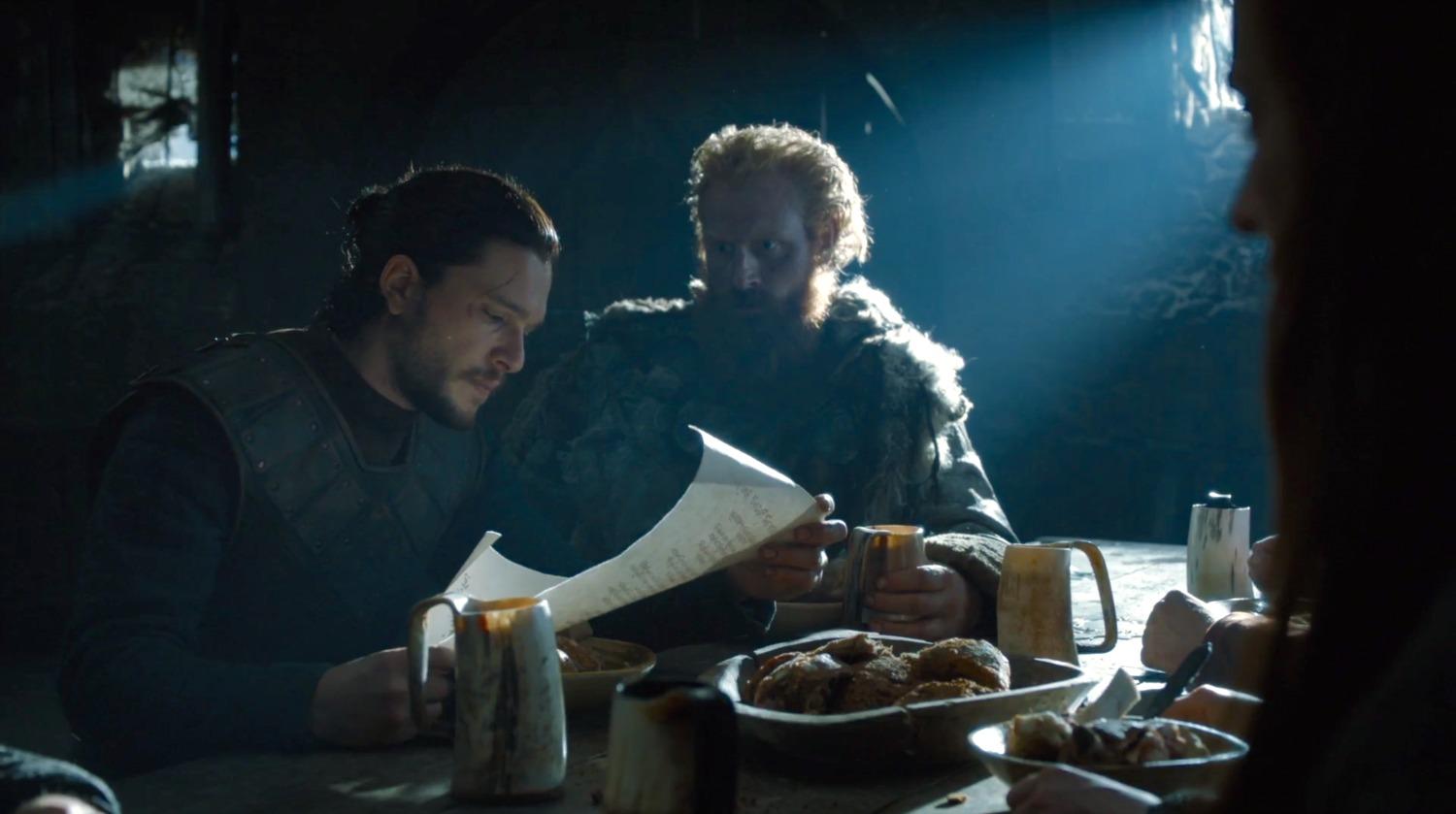
No comments:
Post a Comment